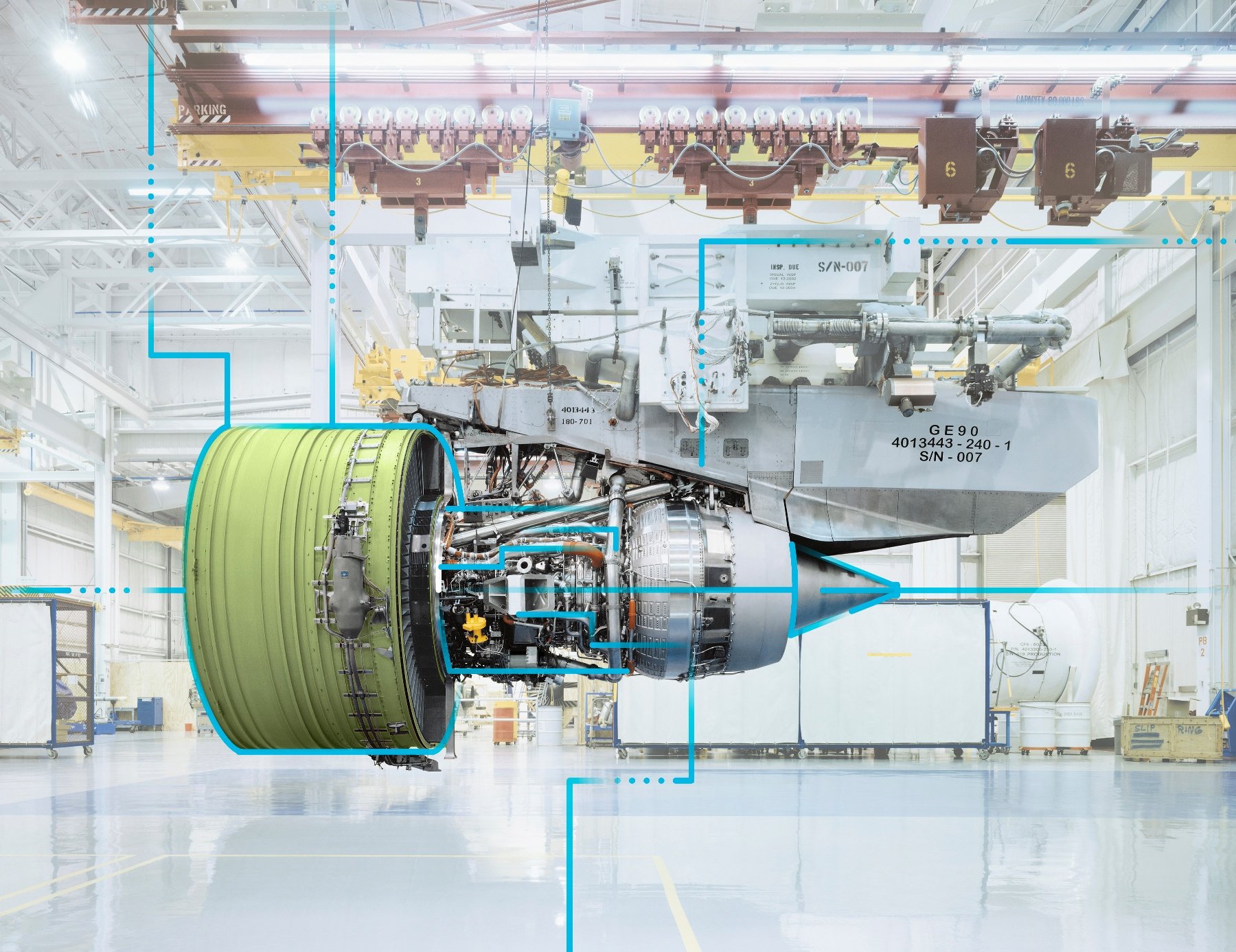Editor’s note: This is a sponsored article, which means it’s independently written by our editorial team but financially supported by another organisation, in this case, GE. If you would like to learn more about sponsored posts on tech.eu, read this and contact us if you’re interested in partnering with us.
Europe is facing an unprecedented opportunity to capitalise on the next industrial revolution through digitalisation, but the challenges are equally huge.
That’s according to GE, which envisions a future for Europe where the Industrial Internet reinvents industrial productivity and boosts Europe’s economy. However notable obstacles left behind by the 2008 global recession and the Eurozone crisis, such as slow GDP growth and unemployment, have hampered the continent’s industrial advancement.
Meanwhile the political and social landscape in Europe is in a state of flux with Brexit, the refugee crisis, and forthcoming elections in France. “Growth is still too weak,” says Marco Annunziata, chief economist at GE, pointing to high unemployment (particularly youth unemployment) and slow productivity growth.
Europe’s GDP is just 3% higher now than it was in 2007 and has not been growing at the same pace as the US or Australia. Economies such as those of Spain and Italy are still smaller than they were before the 2008 crisis. What can be done?
The Industrial Internet could add an additional $1.7 trillion to the EU’s GDP. Annunziata says GE’s Industrial Internet solutions, which apply data and analytics to machines and processes, work to boost various industries’ productivity by 20%.
There are some key areas where this is possible: digital healthcare solutions to reduce costs, data analytics to improve transport networks, and software for smarter energy distribution. These are all applications that would in theory free up resources and costs to be allocated elsewhere for greater efficiency.
To achieve this sort of environment, there needs to a healthy ecosystem of app developers and software creators. There are already 1.3 million app developers in Europe as of 2015 with the app economy tipped to generate another 2.9 million jobs by 2018. Industry needs a vibrant app economy like this to drive innovation and the use of new technologies.
GE has developed its own operating system Predix, an industrial cloud-based platform (PaaS). It’s much like an Android or iOS platform but specifically apps for the industrial internet of things (IIoT). It's a widespread platform for app developers to work with to grow the ecosystem.
There also needs to be more collaboration and partnerships to continue this drive towards greater industrialisation. This year GE opened its new Digital Foundry in Paris, a software collaboration hub for app developers, data scientists, and startups to build and develop their ideas for the industrial economy.
“Europe has the talent and infrastructure to lead a productivity revolution and the digitisation of industry must be at the core of this mission,” said chairman and CEO of GE, Jeff Immelt upon the launch of the Digital Foundry.
The Digital Foundry is a step in the right direction but individual countries will need to take action and implement their own programs and schemes. The very real economic, political, and social challenges are what's holding back this new industrial revolution in Europe, according to GE.
There needs to be a concerted effort to boost productivity growth to the rates seen in the late 1990s and 2000s. “Productivity is the only engine of sustainable economic growth," according to Annunziata.
This mission requires three clear steps: structural reform that includes greater mobility in Europe’s labour laws; greater efficiency in bankruptcy procedures; and stronger competition. The European Commission has already put recommendations in place for how each country can improve in these areas.
The second point from GE is related but makes a case to “avoid throttling innovation with excessive regulation.” This is particularly needed when it comes to the free flow of data across borders – the driver for this kind of innovation.
Finally, when it comes to training and education, GE already points to the high levels of unemployment as a significant problem. There needs to be more investment in jobs and training, especially in the face of growing automation, which will force all industries to rethink traditional roles and hiring.
It’s a tall task and won’t happen overnight, but is a long-term commitment to our future.
In December, GE will host Garages, a series of events in Brussels between December 7 and 12 tackling this very challenge.
tech.eu is a partner for the weeklong event that aims to position GE as the leading Digital Industrial company. There will be workshops where attendees can see firsthand the Predix platform and additive manufacturing, as well as panel discussions around policy and the future of industry.
www.gegarages.eu #gegarages



Would you like to write the first comment?
Login to post comments